The X-Men Movies: Worst to Best
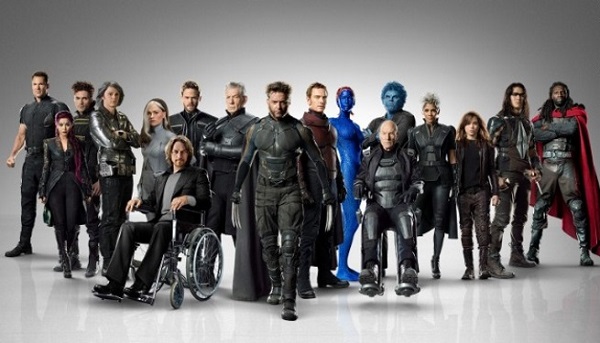 Logan
Logan has been hit with critics, having a 92% rating on Rotten Tomatoes and our own Stanyo Zhelev gave it
a positive review. It has already made over $437 million at the box office and is set to make more.
The
X-Men series has spanned 10 movies to this date and made just under $4.7 billion worldwide and at least two more movies are on the way (
Deadpool 2 and
X-Men: Supernova). The series itself has ranged from movies being the best in the genre to the worst, from being dark sci-fi works to comedic deconstructions of the superhero genre. So let us look at the
X-Men from lowest point to moment of greatness.
10. X-Men Origins: Wolverine
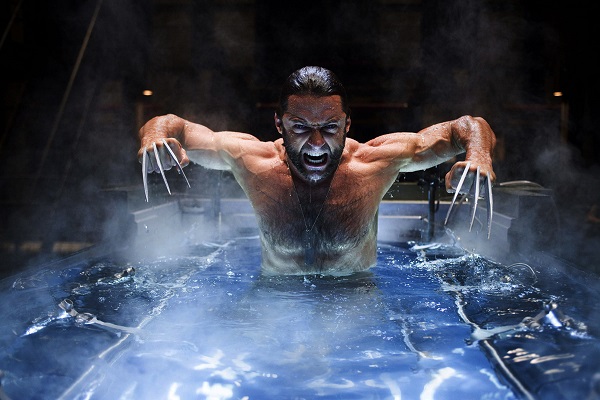
The first attempt at a Wolverine solo film has the unwanted distinction of being the worst movie in the
X-Men franchise and being the only truly bad film in the series. After the original trilogy concluded, Fox moved to make a spin-off series about the most popular mutant - Wolverine with the film to be based on Barry Windsor-Smith’s “Weapon X” story. Signs were promising; David Benioff, the screenwriter of
25th Hour and future showrunner of
Game of Thrones was hired to write the screenplay with emerging South African director Gavin Hood being recruited for the directing duties having just won an Oscar for
Tsotsi. Then the two most dreaded words faced the comic book movie: Tom Rothman.
X-Men Origins: Wolverine was a notoriously difficult shoot with the director and studio executive clashing constantly to the point Richard Donner was brought in to mediate between the two after Hood was nearly fired. Rothman wanted to make a PG-13 action film - undermining the shot with actions like repainting the sets to make the movie lighter. The movie underwent weeks of reshoots. The final nail in the coffin was an unfinished copy of the movie leaked online weeks before the release date.
X-Men Origins: Wolverine told a story that the first two
X-Men movies had already looked at how Wolverine got his claws. A prequel could have worked if it looked at the mental torment and brainwashing Wolverine suffered - becoming a living weapon with no memory of who or what he used to be. But this rich material was turned into a poorly executed superhero film. The CGI was awful and somehow worse than the first movies having atrocious action sequences, forced moments of comedy and worst of all, wasted inclusions of fan favorites Deadpool and Gambit. The movie was so bad that it was retconned before
X-Men: Days of Future Past rewrote the timelines.
There are still some moments of merits: Liev Schreiber stole the show as Victor Creed AKA Sabretooth and would have been a great villain in a better movie. Ryan Reynolds as Wade Wilson was also a highlight with his quips and "Origins" did still manage to have one of the most memorable sequences in the
X-Men franchise - the war montage where Wolverine and Sabretooth fought together from the American Civil War to the Vietnam War.
9. X-Men: The Last Stand
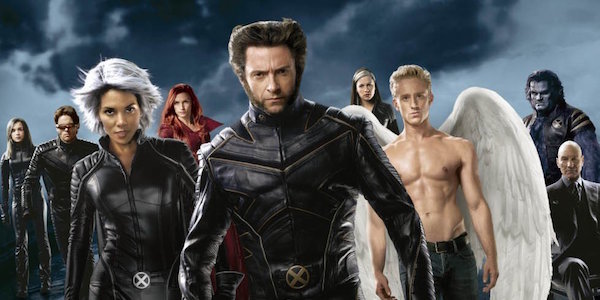 X-Men: The Last Stand
X-Men: The Last Stand has been a maligned movie, suffering the wrath of fans but the years has been kinder to the third
X-Men movie. Like
X-Men Origins: Wolverine X-Men: The Last Stand was a troubled production with Bryan Singer leaving to direct
Superman Returns and his replacement Matthew Vaughn walking away because of the rushed production schedule - leaving Brett Ratner to suffer the fallout.
X-Men: The Last Stand’s problem was it tried to do too much too fast, adapting both “The Dark Phoenix” storyline that was set up at the end of
X2: X-Men United and Joss Wheldon’s “Gifted” storyline which sees a cure for mutation being created. The final part of the trilogy also flooded the film with new characters resulting many being given the short shrift – the biggest causality was Angel who was marketed as a major character but ended up having no more than 10 minutes of screentime. Ratner’s preference for humor also weakens the movie with Vinnie Jones’ Juggernaut having a number of one-liners including the infamous
“Don’t you know who I am? I’m the Juggernaut bitch!”
Even with these problems,
X-Men: The Last Stand does have moments of merit, from small bits like a young Warren Worthington III trying to hack off his angel wings and Magneto showing off his Holocaust tattoo to his potential recruits. It also attempts to keep the themes of mutants being persecuted and maligned while raising the question about whether they
would take a cure to fit in with the rest of society if they could. The movie also boosted some excellent action sequences - the best being Wolverine trying to infiltrate Magneto’s camp.
More casual fans and fans who disliked the Bryan Singer movies have been more hospitable towards
X-Men: The Last Stand. With more time given to pre-production, "The Last Stand" could have been great.
8. X-Men
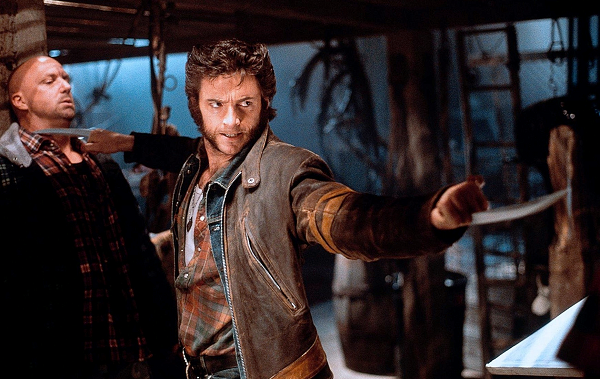
If time has been kind to
X-Men: The Last Stand then the opposite is true regarding the X-Men's first cinematic adventure. 2000's
X-Men was tasked with being the film to introduce the famous superhero team to mainstream audiences and be the first major superhero movie made in the aftermath of the notorious
Batman & Robin.
X-Men went through years of production before Bryan Singer took on the job, casting high caliber actors like Patrick Stewart and Ian McKellen, emerging talent in the form of Anna Paquin and Famke Janssen and most controversially an unknown Australian, Hugh Jackman, replacing Dougray Scott as Wolverine.
The original
X-Men movie
works best as an introductory movie, getting audiences to meet the characters and understand the issues and factions that dominate their world. It also set out a darker, more adult interpretation, in the superhero genre, starting with a young Erik Lehnsherr being dragged away from his mother by SS guards, seeing a teenage girl nearly killing her boyfriend with her newly awakened powers and showing Wolverine's traumatic past.
While
X-Men had great character work, its failure was in the action department, made worse because the effects have aged poorly. Still, it was the movie that kicked off the series and started the early noughties superhero boom.
7. X-Men: Apocalypse
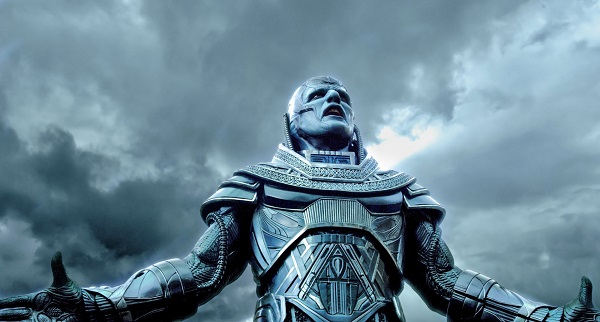
2016's
X-Men: Apocalypse was an incredibly hyped movie but was met with mixed reviews: even our Mr. Zhelev gave it a negative review. Although it underwhelmed with fans and critics
X-Men: Apocalypse was one of the better blockbusters from 2016 - amidst being a weak year.
X-Men: Apocalypse was Bryan Singer's attempt to make a genre film with the X-Men, moving away from the social-political themes that he liked to focus on to a more action, destruction focused movie. While he was clearly trying Singer, giving characters like Mystique, Psylocke and The Blob their comic book costume, he was not as comfortable with this and like the weaker entries in the franchise,
Apocalypse became an unfocused mess, having too many characters. Angel also gets the shaft a second time.
X-Men: Apocalypse also
has the distinction of being one of the most violent PG-13 movies ever made: it started with an excellent prologue sequence in ancient Egypt where people rebelled against Apocalypse's rule - leading to gory results and continued with a
rage filled Wolverine slaughtering his way through the military personnel in Alkali Lake.
The best feature in "Apocalypse" was Michael Fassbender's as Erik Lehnsherr - focused on becoming Magneto again after reaching his lowest ebb and convinced to join Apocalypse.
6. The Wolverine
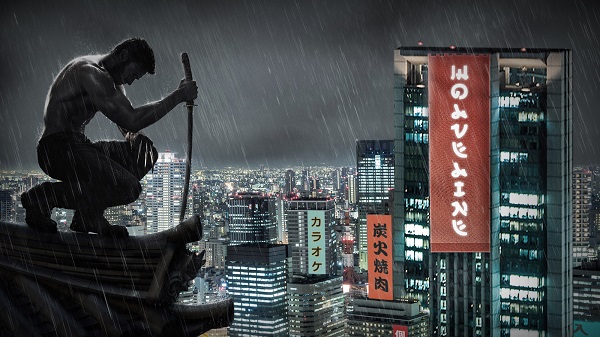 The Wolverine
The Wolverine was the first movie in the series to be directed by James Mangold and a marked improvement over its predecessor. However, with the likes of Darren Aronofsky and Christopher McQuarrie being linked it was a case of what might have been.
The Wolverine is based on Chris Claremont and Frank Miller's limited 1982 series
The Wolverine that saw everyone's favorite Canuck going to Japan. The movie was originally intended to follow on from
X-Men Origins: Wolverine - an alternative ending post-credits scene was seeing Wolverine drinking in a Japanese bar. However, it was turned into a sequel to
X-Men: The Last Stand, ignoring "Origins'" existence.
The Wolverine smartly focused on one of the best attributes of the
X-Men series - its characters and their personal struggles. After the events of "The Last Stand", this film sees Logan leaving the X-Men and living as a hermit before being taken to Japan under false pretenses. While in Japan Wolverine loses his powers and sees what it could be like to live a normal life. It was essentially a trial run for
Logan which Mangold had more of a say in the writing process for.
The film was rated PG-13 but the Blu-ray version had an unrated cut which saw extra ninja action - including an incident with a snow blower.
5. Deadpool
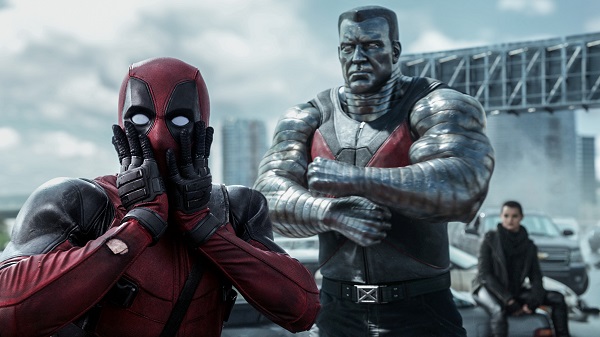
2016's
Deadpool was a passion project for Ryan Reynolds, a movie he wanted to make despite 20th Century Fox having no interest in the project after
X-Men Origins: Wolverine left a sour taste with fans. It was after test footage was leaked that Fox allowed the movie to be made with a modest budget of $58 million and ended up being the most financially successful
X-Men movie - making over $783 million.
Deadpool is a strange offshoot in the
X-Men franchise, a stand-alone origins story about one of Marvel's most unique characters. Deadpool is known for his ability to break the fourth wall and, Reynolds along with the filmmakers, used it to make fun of the
X-Men series and confused timeline, Hugh Jackman and the movie's lack of budget.
As a superhero-comedy it works as both a humorous take on the genre and provides superhero thrills. Reynolds nailed the character, even willing to make fun of himself as Deadpool. Director Tim Miller, an experienced special effects artist showed himself to be a competent action director and he has earned himself the directing duties to a
Terminator reboot produced by James Cameron.
4. Logan
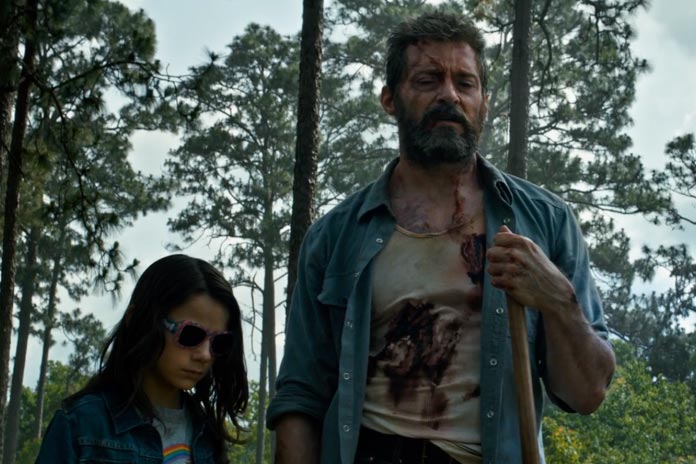
The movie to influence has earned itself a respectable fourth place and is easily the best Wolverine film, being the delicious R-rating, full-blooded offering, fans had been hoping for. Loosely based on Mark Miller's
Old Man Logan storyline,
Logan is basically the dystopian story within the
X-Men movie series, borrowing ideas and visuals from
Children of Men,
The Road and
Looper: and those are three excellent movies to be influenced by.
Logan was also Hugh Jackman's last appearance and while there is some sadness that he is leaving the series there is no denying he was a loyal servant and the movie was a hell of a swansong for the Wolverine.
Logan allowed us to see Wolverine at his lowest ebb - a mutant whose powers are failing, he lost almost everyone who was close to him and he has become jaded. Yet like in
The Wolverine, Logan gives the main character a chance to see what a normal life can be like when he has to protect his daughter, Laura AKA X-23.
3. X-Men: First Class
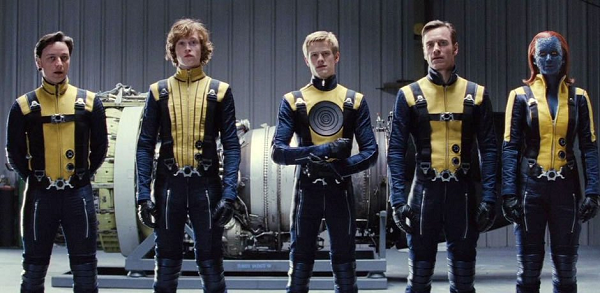
After
X-Men: The Last Stand and
X-Men Origins: Wolverine the movie series was seemingly on its last leg and it would take a miracle to save it. That miracle came in the form of Matthew Vaughn, coming into the series after cult hit
Kick-Ass. Vaughn reteamed with his
Kick-Ass writer Jane Goldman to make a prequel set in the '60s.
Vaughn assembled a great cast of then emerging talent: the biggest being James McAvoy and Michael Fassbender as Charles Xavier and Erik Lehnsherr. The central focus of the movie was on their friendship and how their ideological split happened. Fassbender particularly impressed as the tortured young Lehnsherr, hunting down the Nazis that experimented on him and killed his mother and ends up leading the extreme Mutant movement.
Vaughn's directional skills were fully on display, being brighter and more colorful than its predecessors and embraces its comic book origins. Yet also has the darkness and intensity that fans would expect from the series, from the teenage Lehnsherr getting experimented on to Lehnsherr getting his revenge against Sebastian Shaw.
X-Men: First Class was also a wonderful blend of fact and fiction, where the villains start the Cuban Missile Crisis for their own ends and set the third act during the height of the tensions.
X-Men: First Class was originally meant to be two movies, a sequel to the original trilogy and a prequel film about Magneto and then ended up being merged together.
2. X2: X-Men United
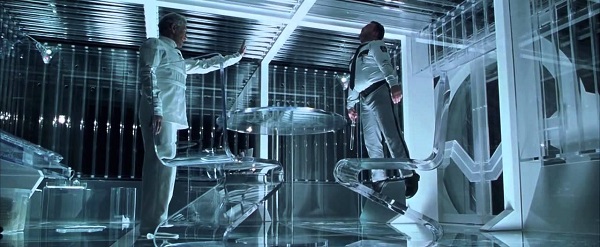
2000's
X-Men was an example of baby steps for Bryan Singer and the
X-Men series as a whole his sequel was a marked improvement and often seen as one of the
best films in the series (unless you listen to Bob "Moviebob" Chipman). Loosely based on "God Loves, Man Kills" storyline the sequel was an expansion of the film universe, showing how the government and homo-sapiens react to mutants population.
The improvement in the action was stark, starting with one of the best action scenes in the franchise where
Nightcrawler fights his way through The White Horse and continues from there. Mutant powers were used in inventive ways, like when
Magneto escapes from his plastic prison.
X2 allowed audiences to see Hugh Jackman do
Wolverine's berserker rage for the first time.
As well as the action
X2 also had the necessary emotional weight and world-changing stakes that audiences would want from an
X-Men movie. Wolverine and Magneto particularly delivered on the emotional front, Wolverine having the opportunity to find out about his past from Colonel Stryker while Magneto tries to convince Pyro to join his faction.
Singer referred to
Star Wars: Episode V - The Empire Strikes Back and
Star Trek II: Wrath of Khan as influences on
X2: they were good reference points.
1. X-Men: Days of Future Past
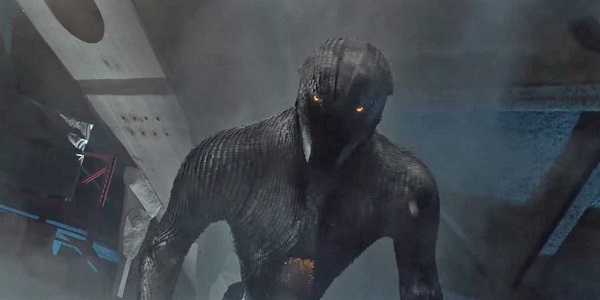
Topping the list is Bryan Singer's big comeback to the
X-Men series, adapting one of the series most popular comic book storylines. Singer was given a titanic task of making a movie that combined both the continuities of the original series and the prequel series and rebooting the whole franchise - and he did it exceptionally.
X-Men: Days of Future Past gives audiences a post-apocalyptic take on the
X-Men series where the Sentinels have taken over the world and mutants are rounded up and exterminated resulting in the X-Men sending one of their number back to 1973 - to finish the war before it even starts
. This time the series focused on Charles Xavier and how he is brought back from the edge to become the leader of the mutant rights movement.
There were worries that the movie would be overstuffed since most of the cast respired their roles as well as some of the promotional material (i.e.
Empire's cover featuring Quicksilver). Fortunately, these doubts were unfounded.
X-Men: Days of Future Past worked because it combined what worked from "X2" and "First Class" - having the character drama, social-political themes and action that fans want. All this culminated during
Magneto's speech giving humanity a warning and calling on mutants to join him while the X-Men in the future were fighting and dying facing the unstoppable Sentinels in a brutal last stand.
It was the biggest
X-Men movie to date and the best.
Fun fact: Juggernaut was originally set to appear but changed to Quicksilver at the last minute on behest of Fox as a way to screw over Marvel Studios. It goes to show that talented filmmakers can work within the studio constraints and sometimes studio execs get it right.
 Logan has been hit with critics, having a 92% rating on Rotten Tomatoes and our own Stanyo Zhelev gave it a positive review. It has already made over $437 million at the box office and is set to make more.
The X-Men series has spanned 10 movies to this date and made just under $4.7 billion worldwide and at least two more movies are on the way (Deadpool 2 and X-Men: Supernova). The series itself has ranged from movies being the best in the genre to the worst, from being dark sci-fi works to comedic deconstructions of the superhero genre. So let us look at the X-Men from lowest point to moment of greatness.
10. X-Men Origins: Wolverine
Logan has been hit with critics, having a 92% rating on Rotten Tomatoes and our own Stanyo Zhelev gave it a positive review. It has already made over $437 million at the box office and is set to make more.
The X-Men series has spanned 10 movies to this date and made just under $4.7 billion worldwide and at least two more movies are on the way (Deadpool 2 and X-Men: Supernova). The series itself has ranged from movies being the best in the genre to the worst, from being dark sci-fi works to comedic deconstructions of the superhero genre. So let us look at the X-Men from lowest point to moment of greatness.
10. X-Men Origins: Wolverine
 The first attempt at a Wolverine solo film has the unwanted distinction of being the worst movie in the X-Men franchise and being the only truly bad film in the series. After the original trilogy concluded, Fox moved to make a spin-off series about the most popular mutant - Wolverine with the film to be based on Barry Windsor-Smith’s “Weapon X” story. Signs were promising; David Benioff, the screenwriter of 25th Hour and future showrunner of Game of Thrones was hired to write the screenplay with emerging South African director Gavin Hood being recruited for the directing duties having just won an Oscar for Tsotsi. Then the two most dreaded words faced the comic book movie: Tom Rothman.
X-Men Origins: Wolverine was a notoriously difficult shoot with the director and studio executive clashing constantly to the point Richard Donner was brought in to mediate between the two after Hood was nearly fired. Rothman wanted to make a PG-13 action film - undermining the shot with actions like repainting the sets to make the movie lighter. The movie underwent weeks of reshoots. The final nail in the coffin was an unfinished copy of the movie leaked online weeks before the release date.
X-Men Origins: Wolverine told a story that the first two X-Men movies had already looked at how Wolverine got his claws. A prequel could have worked if it looked at the mental torment and brainwashing Wolverine suffered - becoming a living weapon with no memory of who or what he used to be. But this rich material was turned into a poorly executed superhero film. The CGI was awful and somehow worse than the first movies having atrocious action sequences, forced moments of comedy and worst of all, wasted inclusions of fan favorites Deadpool and Gambit. The movie was so bad that it was retconned before X-Men: Days of Future Past rewrote the timelines.
There are still some moments of merits: Liev Schreiber stole the show as Victor Creed AKA Sabretooth and would have been a great villain in a better movie. Ryan Reynolds as Wade Wilson was also a highlight with his quips and "Origins" did still manage to have one of the most memorable sequences in the X-Men franchise - the war montage where Wolverine and Sabretooth fought together from the American Civil War to the Vietnam War.
9. X-Men: The Last Stand
The first attempt at a Wolverine solo film has the unwanted distinction of being the worst movie in the X-Men franchise and being the only truly bad film in the series. After the original trilogy concluded, Fox moved to make a spin-off series about the most popular mutant - Wolverine with the film to be based on Barry Windsor-Smith’s “Weapon X” story. Signs were promising; David Benioff, the screenwriter of 25th Hour and future showrunner of Game of Thrones was hired to write the screenplay with emerging South African director Gavin Hood being recruited for the directing duties having just won an Oscar for Tsotsi. Then the two most dreaded words faced the comic book movie: Tom Rothman.
X-Men Origins: Wolverine was a notoriously difficult shoot with the director and studio executive clashing constantly to the point Richard Donner was brought in to mediate between the two after Hood was nearly fired. Rothman wanted to make a PG-13 action film - undermining the shot with actions like repainting the sets to make the movie lighter. The movie underwent weeks of reshoots. The final nail in the coffin was an unfinished copy of the movie leaked online weeks before the release date.
X-Men Origins: Wolverine told a story that the first two X-Men movies had already looked at how Wolverine got his claws. A prequel could have worked if it looked at the mental torment and brainwashing Wolverine suffered - becoming a living weapon with no memory of who or what he used to be. But this rich material was turned into a poorly executed superhero film. The CGI was awful and somehow worse than the first movies having atrocious action sequences, forced moments of comedy and worst of all, wasted inclusions of fan favorites Deadpool and Gambit. The movie was so bad that it was retconned before X-Men: Days of Future Past rewrote the timelines.
There are still some moments of merits: Liev Schreiber stole the show as Victor Creed AKA Sabretooth and would have been a great villain in a better movie. Ryan Reynolds as Wade Wilson was also a highlight with his quips and "Origins" did still manage to have one of the most memorable sequences in the X-Men franchise - the war montage where Wolverine and Sabretooth fought together from the American Civil War to the Vietnam War.
9. X-Men: The Last Stand
 X-Men: The Last Stand has been a maligned movie, suffering the wrath of fans but the years has been kinder to the third X-Men movie. Like X-Men Origins: Wolverine X-Men: The Last Stand was a troubled production with Bryan Singer leaving to direct Superman Returns and his replacement Matthew Vaughn walking away because of the rushed production schedule - leaving Brett Ratner to suffer the fallout.
X-Men: The Last Stand’s problem was it tried to do too much too fast, adapting both “The Dark Phoenix” storyline that was set up at the end of X2: X-Men United and Joss Wheldon’s “Gifted” storyline which sees a cure for mutation being created. The final part of the trilogy also flooded the film with new characters resulting many being given the short shrift – the biggest causality was Angel who was marketed as a major character but ended up having no more than 10 minutes of screentime. Ratner’s preference for humor also weakens the movie with Vinnie Jones’ Juggernaut having a number of one-liners including the infamous “Don’t you know who I am? I’m the Juggernaut bitch!”
Even with these problems, X-Men: The Last Stand does have moments of merit, from small bits like a young Warren Worthington III trying to hack off his angel wings and Magneto showing off his Holocaust tattoo to his potential recruits. It also attempts to keep the themes of mutants being persecuted and maligned while raising the question about whether they would take a cure to fit in with the rest of society if they could. The movie also boosted some excellent action sequences - the best being Wolverine trying to infiltrate Magneto’s camp.
More casual fans and fans who disliked the Bryan Singer movies have been more hospitable towards X-Men: The Last Stand. With more time given to pre-production, "The Last Stand" could have been great.
8. X-Men
X-Men: The Last Stand has been a maligned movie, suffering the wrath of fans but the years has been kinder to the third X-Men movie. Like X-Men Origins: Wolverine X-Men: The Last Stand was a troubled production with Bryan Singer leaving to direct Superman Returns and his replacement Matthew Vaughn walking away because of the rushed production schedule - leaving Brett Ratner to suffer the fallout.
X-Men: The Last Stand’s problem was it tried to do too much too fast, adapting both “The Dark Phoenix” storyline that was set up at the end of X2: X-Men United and Joss Wheldon’s “Gifted” storyline which sees a cure for mutation being created. The final part of the trilogy also flooded the film with new characters resulting many being given the short shrift – the biggest causality was Angel who was marketed as a major character but ended up having no more than 10 minutes of screentime. Ratner’s preference for humor also weakens the movie with Vinnie Jones’ Juggernaut having a number of one-liners including the infamous “Don’t you know who I am? I’m the Juggernaut bitch!”
Even with these problems, X-Men: The Last Stand does have moments of merit, from small bits like a young Warren Worthington III trying to hack off his angel wings and Magneto showing off his Holocaust tattoo to his potential recruits. It also attempts to keep the themes of mutants being persecuted and maligned while raising the question about whether they would take a cure to fit in with the rest of society if they could. The movie also boosted some excellent action sequences - the best being Wolverine trying to infiltrate Magneto’s camp.
More casual fans and fans who disliked the Bryan Singer movies have been more hospitable towards X-Men: The Last Stand. With more time given to pre-production, "The Last Stand" could have been great.
8. X-Men
 If time has been kind to X-Men: The Last Stand then the opposite is true regarding the X-Men's first cinematic adventure. 2000's X-Men was tasked with being the film to introduce the famous superhero team to mainstream audiences and be the first major superhero movie made in the aftermath of the notorious Batman & Robin.
X-Men went through years of production before Bryan Singer took on the job, casting high caliber actors like Patrick Stewart and Ian McKellen, emerging talent in the form of Anna Paquin and Famke Janssen and most controversially an unknown Australian, Hugh Jackman, replacing Dougray Scott as Wolverine.
The original X-Men movie works best as an introductory movie, getting audiences to meet the characters and understand the issues and factions that dominate their world. It also set out a darker, more adult interpretation, in the superhero genre, starting with a young Erik Lehnsherr being dragged away from his mother by SS guards, seeing a teenage girl nearly killing her boyfriend with her newly awakened powers and showing Wolverine's traumatic past.
While X-Men had great character work, its failure was in the action department, made worse because the effects have aged poorly. Still, it was the movie that kicked off the series and started the early noughties superhero boom.
7. X-Men: Apocalypse
If time has been kind to X-Men: The Last Stand then the opposite is true regarding the X-Men's first cinematic adventure. 2000's X-Men was tasked with being the film to introduce the famous superhero team to mainstream audiences and be the first major superhero movie made in the aftermath of the notorious Batman & Robin.
X-Men went through years of production before Bryan Singer took on the job, casting high caliber actors like Patrick Stewart and Ian McKellen, emerging talent in the form of Anna Paquin and Famke Janssen and most controversially an unknown Australian, Hugh Jackman, replacing Dougray Scott as Wolverine.
The original X-Men movie works best as an introductory movie, getting audiences to meet the characters and understand the issues and factions that dominate their world. It also set out a darker, more adult interpretation, in the superhero genre, starting with a young Erik Lehnsherr being dragged away from his mother by SS guards, seeing a teenage girl nearly killing her boyfriend with her newly awakened powers and showing Wolverine's traumatic past.
While X-Men had great character work, its failure was in the action department, made worse because the effects have aged poorly. Still, it was the movie that kicked off the series and started the early noughties superhero boom.
7. X-Men: Apocalypse
 2016's X-Men: Apocalypse was an incredibly hyped movie but was met with mixed reviews: even our Mr. Zhelev gave it a negative review. Although it underwhelmed with fans and critics X-Men: Apocalypse was one of the better blockbusters from 2016 - amidst being a weak year.
X-Men: Apocalypse was Bryan Singer's attempt to make a genre film with the X-Men, moving away from the social-political themes that he liked to focus on to a more action, destruction focused movie. While he was clearly trying Singer, giving characters like Mystique, Psylocke and The Blob their comic book costume, he was not as comfortable with this and like the weaker entries in the franchise, Apocalypse became an unfocused mess, having too many characters. Angel also gets the shaft a second time.
X-Men: Apocalypse also has the distinction of being one of the most violent PG-13 movies ever made: it started with an excellent prologue sequence in ancient Egypt where people rebelled against Apocalypse's rule - leading to gory results and continued with a rage filled Wolverine slaughtering his way through the military personnel in Alkali Lake.
The best feature in "Apocalypse" was Michael Fassbender's as Erik Lehnsherr - focused on becoming Magneto again after reaching his lowest ebb and convinced to join Apocalypse.
6. The Wolverine
2016's X-Men: Apocalypse was an incredibly hyped movie but was met with mixed reviews: even our Mr. Zhelev gave it a negative review. Although it underwhelmed with fans and critics X-Men: Apocalypse was one of the better blockbusters from 2016 - amidst being a weak year.
X-Men: Apocalypse was Bryan Singer's attempt to make a genre film with the X-Men, moving away from the social-political themes that he liked to focus on to a more action, destruction focused movie. While he was clearly trying Singer, giving characters like Mystique, Psylocke and The Blob their comic book costume, he was not as comfortable with this and like the weaker entries in the franchise, Apocalypse became an unfocused mess, having too many characters. Angel also gets the shaft a second time.
X-Men: Apocalypse also has the distinction of being one of the most violent PG-13 movies ever made: it started with an excellent prologue sequence in ancient Egypt where people rebelled against Apocalypse's rule - leading to gory results and continued with a rage filled Wolverine slaughtering his way through the military personnel in Alkali Lake.
The best feature in "Apocalypse" was Michael Fassbender's as Erik Lehnsherr - focused on becoming Magneto again after reaching his lowest ebb and convinced to join Apocalypse.
6. The Wolverine
 The Wolverine was the first movie in the series to be directed by James Mangold and a marked improvement over its predecessor. However, with the likes of Darren Aronofsky and Christopher McQuarrie being linked it was a case of what might have been.
The Wolverine is based on Chris Claremont and Frank Miller's limited 1982 series The Wolverine that saw everyone's favorite Canuck going to Japan. The movie was originally intended to follow on from X-Men Origins: Wolverine - an alternative ending post-credits scene was seeing Wolverine drinking in a Japanese bar. However, it was turned into a sequel to X-Men: The Last Stand, ignoring "Origins'" existence.
The Wolverine smartly focused on one of the best attributes of the X-Men series - its characters and their personal struggles. After the events of "The Last Stand", this film sees Logan leaving the X-Men and living as a hermit before being taken to Japan under false pretenses. While in Japan Wolverine loses his powers and sees what it could be like to live a normal life. It was essentially a trial run for Logan which Mangold had more of a say in the writing process for.
The film was rated PG-13 but the Blu-ray version had an unrated cut which saw extra ninja action - including an incident with a snow blower.
5. Deadpool
The Wolverine was the first movie in the series to be directed by James Mangold and a marked improvement over its predecessor. However, with the likes of Darren Aronofsky and Christopher McQuarrie being linked it was a case of what might have been.
The Wolverine is based on Chris Claremont and Frank Miller's limited 1982 series The Wolverine that saw everyone's favorite Canuck going to Japan. The movie was originally intended to follow on from X-Men Origins: Wolverine - an alternative ending post-credits scene was seeing Wolverine drinking in a Japanese bar. However, it was turned into a sequel to X-Men: The Last Stand, ignoring "Origins'" existence.
The Wolverine smartly focused on one of the best attributes of the X-Men series - its characters and their personal struggles. After the events of "The Last Stand", this film sees Logan leaving the X-Men and living as a hermit before being taken to Japan under false pretenses. While in Japan Wolverine loses his powers and sees what it could be like to live a normal life. It was essentially a trial run for Logan which Mangold had more of a say in the writing process for.
The film was rated PG-13 but the Blu-ray version had an unrated cut which saw extra ninja action - including an incident with a snow blower.
5. Deadpool
 2016's Deadpool was a passion project for Ryan Reynolds, a movie he wanted to make despite 20th Century Fox having no interest in the project after X-Men Origins: Wolverine left a sour taste with fans. It was after test footage was leaked that Fox allowed the movie to be made with a modest budget of $58 million and ended up being the most financially successful X-Men movie - making over $783 million.
Deadpool is a strange offshoot in the X-Men franchise, a stand-alone origins story about one of Marvel's most unique characters. Deadpool is known for his ability to break the fourth wall and, Reynolds along with the filmmakers, used it to make fun of the X-Men series and confused timeline, Hugh Jackman and the movie's lack of budget.
As a superhero-comedy it works as both a humorous take on the genre and provides superhero thrills. Reynolds nailed the character, even willing to make fun of himself as Deadpool. Director Tim Miller, an experienced special effects artist showed himself to be a competent action director and he has earned himself the directing duties to a Terminator reboot produced by James Cameron.
4. Logan
2016's Deadpool was a passion project for Ryan Reynolds, a movie he wanted to make despite 20th Century Fox having no interest in the project after X-Men Origins: Wolverine left a sour taste with fans. It was after test footage was leaked that Fox allowed the movie to be made with a modest budget of $58 million and ended up being the most financially successful X-Men movie - making over $783 million.
Deadpool is a strange offshoot in the X-Men franchise, a stand-alone origins story about one of Marvel's most unique characters. Deadpool is known for his ability to break the fourth wall and, Reynolds along with the filmmakers, used it to make fun of the X-Men series and confused timeline, Hugh Jackman and the movie's lack of budget.
As a superhero-comedy it works as both a humorous take on the genre and provides superhero thrills. Reynolds nailed the character, even willing to make fun of himself as Deadpool. Director Tim Miller, an experienced special effects artist showed himself to be a competent action director and he has earned himself the directing duties to a Terminator reboot produced by James Cameron.
4. Logan
 The movie to influence has earned itself a respectable fourth place and is easily the best Wolverine film, being the delicious R-rating, full-blooded offering, fans had been hoping for. Loosely based on Mark Miller's Old Man Logan storyline, Logan is basically the dystopian story within the X-Men movie series, borrowing ideas and visuals from Children of Men, The Road and Looper: and those are three excellent movies to be influenced by.
Logan was also Hugh Jackman's last appearance and while there is some sadness that he is leaving the series there is no denying he was a loyal servant and the movie was a hell of a swansong for the Wolverine. Logan allowed us to see Wolverine at his lowest ebb - a mutant whose powers are failing, he lost almost everyone who was close to him and he has become jaded. Yet like in The Wolverine, Logan gives the main character a chance to see what a normal life can be like when he has to protect his daughter, Laura AKA X-23.
3. X-Men: First Class
The movie to influence has earned itself a respectable fourth place and is easily the best Wolverine film, being the delicious R-rating, full-blooded offering, fans had been hoping for. Loosely based on Mark Miller's Old Man Logan storyline, Logan is basically the dystopian story within the X-Men movie series, borrowing ideas and visuals from Children of Men, The Road and Looper: and those are three excellent movies to be influenced by.
Logan was also Hugh Jackman's last appearance and while there is some sadness that he is leaving the series there is no denying he was a loyal servant and the movie was a hell of a swansong for the Wolverine. Logan allowed us to see Wolverine at his lowest ebb - a mutant whose powers are failing, he lost almost everyone who was close to him and he has become jaded. Yet like in The Wolverine, Logan gives the main character a chance to see what a normal life can be like when he has to protect his daughter, Laura AKA X-23.
3. X-Men: First Class
 After X-Men: The Last Stand and X-Men Origins: Wolverine the movie series was seemingly on its last leg and it would take a miracle to save it. That miracle came in the form of Matthew Vaughn, coming into the series after cult hit Kick-Ass. Vaughn reteamed with his Kick-Ass writer Jane Goldman to make a prequel set in the '60s.
Vaughn assembled a great cast of then emerging talent: the biggest being James McAvoy and Michael Fassbender as Charles Xavier and Erik Lehnsherr. The central focus of the movie was on their friendship and how their ideological split happened. Fassbender particularly impressed as the tortured young Lehnsherr, hunting down the Nazis that experimented on him and killed his mother and ends up leading the extreme Mutant movement.
Vaughn's directional skills were fully on display, being brighter and more colorful than its predecessors and embraces its comic book origins. Yet also has the darkness and intensity that fans would expect from the series, from the teenage Lehnsherr getting experimented on to Lehnsherr getting his revenge against Sebastian Shaw.
X-Men: First Class was also a wonderful blend of fact and fiction, where the villains start the Cuban Missile Crisis for their own ends and set the third act during the height of the tensions.
X-Men: First Class was originally meant to be two movies, a sequel to the original trilogy and a prequel film about Magneto and then ended up being merged together.
2. X2: X-Men United
After X-Men: The Last Stand and X-Men Origins: Wolverine the movie series was seemingly on its last leg and it would take a miracle to save it. That miracle came in the form of Matthew Vaughn, coming into the series after cult hit Kick-Ass. Vaughn reteamed with his Kick-Ass writer Jane Goldman to make a prequel set in the '60s.
Vaughn assembled a great cast of then emerging talent: the biggest being James McAvoy and Michael Fassbender as Charles Xavier and Erik Lehnsherr. The central focus of the movie was on their friendship and how their ideological split happened. Fassbender particularly impressed as the tortured young Lehnsherr, hunting down the Nazis that experimented on him and killed his mother and ends up leading the extreme Mutant movement.
Vaughn's directional skills were fully on display, being brighter and more colorful than its predecessors and embraces its comic book origins. Yet also has the darkness and intensity that fans would expect from the series, from the teenage Lehnsherr getting experimented on to Lehnsherr getting his revenge against Sebastian Shaw.
X-Men: First Class was also a wonderful blend of fact and fiction, where the villains start the Cuban Missile Crisis for their own ends and set the third act during the height of the tensions.
X-Men: First Class was originally meant to be two movies, a sequel to the original trilogy and a prequel film about Magneto and then ended up being merged together.
2. X2: X-Men United
 2000's X-Men was an example of baby steps for Bryan Singer and the X-Men series as a whole his sequel was a marked improvement and often seen as one of the best films in the series (unless you listen to Bob "Moviebob" Chipman). Loosely based on "God Loves, Man Kills" storyline the sequel was an expansion of the film universe, showing how the government and homo-sapiens react to mutants population.
The improvement in the action was stark, starting with one of the best action scenes in the franchise where Nightcrawler fights his way through The White Horse and continues from there. Mutant powers were used in inventive ways, like when Magneto escapes from his plastic prison. X2 allowed audiences to see Hugh Jackman do Wolverine's berserker rage for the first time.
As well as the action X2 also had the necessary emotional weight and world-changing stakes that audiences would want from an X-Men movie. Wolverine and Magneto particularly delivered on the emotional front, Wolverine having the opportunity to find out about his past from Colonel Stryker while Magneto tries to convince Pyro to join his faction.
Singer referred to Star Wars: Episode V - The Empire Strikes Back and Star Trek II: Wrath of Khan as influences on X2: they were good reference points.
1. X-Men: Days of Future Past
2000's X-Men was an example of baby steps for Bryan Singer and the X-Men series as a whole his sequel was a marked improvement and often seen as one of the best films in the series (unless you listen to Bob "Moviebob" Chipman). Loosely based on "God Loves, Man Kills" storyline the sequel was an expansion of the film universe, showing how the government and homo-sapiens react to mutants population.
The improvement in the action was stark, starting with one of the best action scenes in the franchise where Nightcrawler fights his way through The White Horse and continues from there. Mutant powers were used in inventive ways, like when Magneto escapes from his plastic prison. X2 allowed audiences to see Hugh Jackman do Wolverine's berserker rage for the first time.
As well as the action X2 also had the necessary emotional weight and world-changing stakes that audiences would want from an X-Men movie. Wolverine and Magneto particularly delivered on the emotional front, Wolverine having the opportunity to find out about his past from Colonel Stryker while Magneto tries to convince Pyro to join his faction.
Singer referred to Star Wars: Episode V - The Empire Strikes Back and Star Trek II: Wrath of Khan as influences on X2: they were good reference points.
1. X-Men: Days of Future Past
 Topping the list is Bryan Singer's big comeback to the X-Men series, adapting one of the series most popular comic book storylines. Singer was given a titanic task of making a movie that combined both the continuities of the original series and the prequel series and rebooting the whole franchise - and he did it exceptionally.
X-Men: Days of Future Past gives audiences a post-apocalyptic take on the X-Men series where the Sentinels have taken over the world and mutants are rounded up and exterminated resulting in the X-Men sending one of their number back to 1973 - to finish the war before it even starts. This time the series focused on Charles Xavier and how he is brought back from the edge to become the leader of the mutant rights movement.
There were worries that the movie would be overstuffed since most of the cast respired their roles as well as some of the promotional material (i.e. Empire's cover featuring Quicksilver). Fortunately, these doubts were unfounded.
X-Men: Days of Future Past worked because it combined what worked from "X2" and "First Class" - having the character drama, social-political themes and action that fans want. All this culminated during Magneto's speech giving humanity a warning and calling on mutants to join him while the X-Men in the future were fighting and dying facing the unstoppable Sentinels in a brutal last stand.
It was the biggest X-Men movie to date and the best.
Fun fact: Juggernaut was originally set to appear but changed to Quicksilver at the last minute on behest of Fox as a way to screw over Marvel Studios. It goes to show that talented filmmakers can work within the studio constraints and sometimes studio execs get it right.
Topping the list is Bryan Singer's big comeback to the X-Men series, adapting one of the series most popular comic book storylines. Singer was given a titanic task of making a movie that combined both the continuities of the original series and the prequel series and rebooting the whole franchise - and he did it exceptionally.
X-Men: Days of Future Past gives audiences a post-apocalyptic take on the X-Men series where the Sentinels have taken over the world and mutants are rounded up and exterminated resulting in the X-Men sending one of their number back to 1973 - to finish the war before it even starts. This time the series focused on Charles Xavier and how he is brought back from the edge to become the leader of the mutant rights movement.
There were worries that the movie would be overstuffed since most of the cast respired their roles as well as some of the promotional material (i.e. Empire's cover featuring Quicksilver). Fortunately, these doubts were unfounded.
X-Men: Days of Future Past worked because it combined what worked from "X2" and "First Class" - having the character drama, social-political themes and action that fans want. All this culminated during Magneto's speech giving humanity a warning and calling on mutants to join him while the X-Men in the future were fighting and dying facing the unstoppable Sentinels in a brutal last stand.
It was the biggest X-Men movie to date and the best.
Fun fact: Juggernaut was originally set to appear but changed to Quicksilver at the last minute on behest of Fox as a way to screw over Marvel Studios. It goes to show that talented filmmakers can work within the studio constraints and sometimes studio execs get it right.